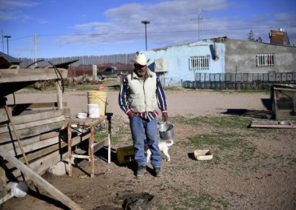Hospitals, doctors, nurses and modern health care system trying to counter a new pandemic coronavirus infection covid-19, but the global health sector is unable to cope with the situation. Is there a solution?
Novel coronavirus infection was struck by all the world’s health systems so people suffering from other diseases, trying to be treated at home.
Currently, all resources for health aims to combat the coronavirus, which affected the treatment of other diseases which require medical treatments such as blood transfusions, chemotherapy or even clinical examination.
According to the newspaper the New York Times, the coronavirus pandemic has adversely affected all sectors of healthcare including medical services for patients with cancer, organ transplant and brain surgery.
As many patients are hospitalized with complications of coronavirus, operating units turn into intensive care and surgeons engaged in the treatment of people with breathing problems.
Moreover, if there is a place for other patients, medical centers take them only when absolutely necessary, because they are afraid that medical staff can get sick with coronavirus.
In addition, patients themselves do not want to go to the hospital, even if they are really sick because they are afraid to pick up a coronavirus infection. People do not report severe symptoms associated with other diseases, so they are not hospitalitynet. This leads to the fact that they develop complications, but they still do not report them until then, until it is too late.
Many hospitals have suspended routine operations and procedures, such as surgery on the knee joints and others. But the problem is that it is difficult to determine what kind of surgery can be postponed, and what not. Unfortunately, delayed treatment can lead to permanent disability of the patient in case of refusal to carry out the necessary operations.
Cancer
Delaying of treatment is especially dangerous for people with cancer. Moreover, it is contrary to years of statements by the world health organization (who), which urges cancer treatment as early as possible, until the condition has deteriorated.
However, in pandemic coronavirus infection doctors say that they are trying to provide treatment for the most serious oncological diseases, not only in order to save medical resources, exhausted by months of combat the coronavirus, but also to protect themselves cancer patients who are at high risk for coronavirus.
In America, for example, almost every fourth cancer reported delays in the delivery of health care in pandemic coronavirus covid-19. This is a survey conducted by the American cancer network for cancer control.
Even among patients with coronavirus
Pressure on the health care system has a negative impact even on those who are sick with coronavirus. Doctors have to choose who to connect to devices of artificial ventilation of the lungs and give a chance to live and who to die.
Doctors are guided by such criteria as age, health status, life expectancy and others to determine which patients will be given priority if not enough ventilators.
This suggests that there were cases when the doctor could save the patient, but did not, leading to deaths that could have been prevented.
What are the solutions?
While we study the coronavirus to learn more about нtv, it should be possible to reduce the burden on intensive care units and hospitals to make room for other patients.
Solve:
1. To create a vaccine, which promotes immunity to the coronavirus that people were no longer infected, or if they get sick covid-19, that the disease proceeded in the form of light and did not require hospitalization. This will significantly reduce the burden on hospitals and medical centers.
Currently, more than 100 potential vaccines, many of which are undergoing clinical trials. However, experts stress the difficulty of finding an effective vaccine against coronavirus infection.
2. To find a cure, which will facilitate the treatment of patients with coronavirus or reduce the risk of complications. If you manage to create such a cure, it significantly reduced the need for ventilators, which will make room in hospitals for other patients.
At the moment there is no cure for coronavirus infection, but there are experimental treatments that have yielded some positive results.
3. To continue the quarantine policy to reduce the number of infected people and reduce pressure on the health system.
4. Gradually remove constraints to develop herd immunity. The idea is that if you have caught a new disease, such as coronavirus infection, and from it are no vaccines, and she is actively spreading among the population, then if a sufficient number of people will develop immunity to the disease, a massive infection will stop, even if not all the population has developed immunity.
Collective immunity against coronavirus formed only if the majority of the population from 60 to 70% have been ill with this disease, and then recovered.
Experts in public health say that we need to be ready for new outbreaks of coronavirus infection. “We need to understand that it will take some time to exit from this pandemic,” said Maria van Kerov, an epidemiologist with the world health organization.
5. It is necessary to understand the mechanism of coronavirus. Why do some people die and others do not feel even a slight headache? The answer to this question will help doctors choose the right treatment in each case.
Currently, British researchers are trying to study the DNA of patients with covid-19 to answer this question. They will sequence the genetic code of people who became seriously ill covid-19, and compare their genomes with those who suffered the infection in a mild form or not at all contracted.
In the search for specific genes that may cause a predisposition to the disease, will be involved to 20 thousand patients in intensive care or have recently left.
“We think that in the genome there are keys that will help us understand how this disease is killing people,” said Kenneth Bailey, a doctor of the intensive care unit at the University of Edinburgh.







